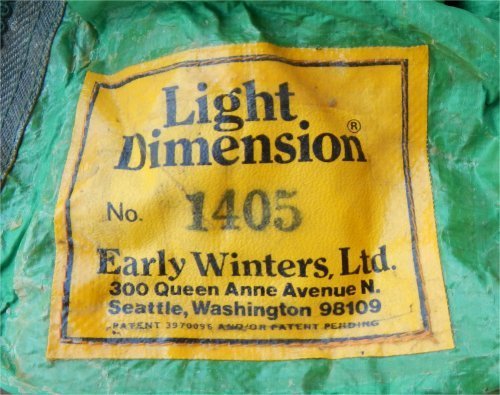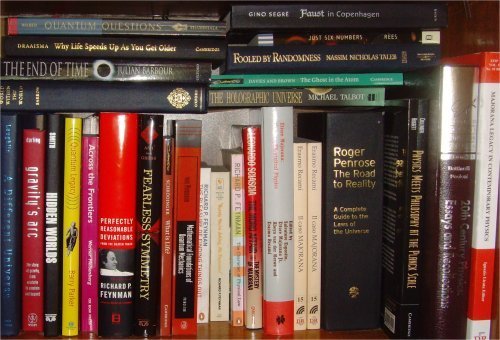Lewis Perdue's Blog, page 16
July 29, 2012
Amazon’s Indie Author Cracks Begin To Show, Grow
Okay, after a score of books and a bunch of bestsellers with traditional publishers, I threw in my lot late last year with Amazon. Did my first indie book. Things initially looked very good.
Then went to Hell.
I did their exclusive “Select Program” and sold a ton of Kindle copies of Die By Wire. But that magic wore off quickly. And to be part of the magic, I had to pull the books from other outlets.
And that has hurt. By the way, a few weeks ago, that previous link to Die By Wire would have gone to the Amazon Kindle edition. Note that it now goes to my own web site where all of the purchase options are available. Yeah, the iBooks version is also coming back. It was there once, but I had to take it down so I could do AMZN’s select promo. Thus, I lost my sales there, lost rankings, and have to be re-approved.
Despite all this hassle, I stuck with AMZN, created more Kindle editions from my backlist. Three more books in the past month.
But unless you’re part of the very few authors blessed by the gods of Seattle, there’s nothing to help sales. They have no system for special promotions, no “buy one get one free” offers etc.
And STILL: after weeks and many emails to their Author Central: OLD & OUT OF PRINT editions of my books still top my author page and comprise four of the top 10 books.
I would think that Amazon would like to SELL books that are AVAILABLE instead of giving top billing to my old, used and unavailable editions.
A good merchant merchandises, offers the best, the freshest up front.
But, not Amazon: They’re currently offering 29 editions of my various books in various languages in an incoherent melange and so many of them are out-of-print or unavailable. It’s like going into a book store and finding a random pile of books on the floor with my name on it.
Confused consumers are not likely to become paying customers. My storefront on Amazon looks like somebody threw a bomb through the window.
I’ve grown sick of writing to Author Central about and receiving polite earnest replies that don’t change this situation.
Until very recently, I have been complimentary about Author Central’s prompt replies and promises to cure the problem. I was hopeful they would solve the problems. Foolishly, I had faith that AMZN had a way or the will to fix the issue.
It’s still true that Author Central has a lot of good, solid well-meaning people whose good intentions are not backed up by the company they work for.
Amazon’s “Sorry, we’re aware of the problem and we’re working on it” has become a useless refrain that solves nothing. On the other hand, Barnes and Noble’s Vook has been constantly after me. And there are also Smashwords and iBooks to work with.
It’s time to see if their sales mechanisms will hold up better than Amazon’s.
Amazon had size, clout and first-mover advantage in this market. But it seems like they’re turning their backs on the indie author and simply acting like just another publisher who wants to bet on a few horses and let the others starve.
God? Or No god?
I had a short Facebook conversation about God or no god Friday with my good friend Randy Liss (whom I killed in a most gory way in Amsterdam in my thriller, Zaibatsu.) Randy’s a mensch. Highly intelligent, good heart. Ethical, honest and proof that you can be all those things while also being an atheist. As you can tell, I like Randy and respect him very much. But I do not understand the leap of faith he as taken just as he cannot understand mine.
This whole issue of believing versus not believing has obsessed me since sometime in 1967 when I had a conversation with a friend during my freshman year at Ole Miss (not long before I got kicked out for leading a march. But that’s another story.”
My friend confessed that he was an atheist. A long conversation followed that can be concentrated into two sentences:
Me: “Well, where did everything come from? Why is there something rather than nothing?”
He: “It just always existed.”
There are a number of philosophical arguments for the existence of God. The one I made is known as “First Cause” and is a cosmological argument.
There is, of course, no way for either side of this argument to “prove” their side.
But I wrestled with the notion for years. I went through several years as a confirmed agnostic: I didn’t believe God existed but I didn’t believe God did not exist. That motivated me to take course after course in college on comparative religions, the philosophy of religion and to read extensively outside of formal classes. And introspection. Lots and lots of introspection.
On the one side, a chasm separating me from believing in God. On the other side, a chasm from firm belief there was no god.
As an agnostic, I hop-scotched that chasm more times than I can count. No matter how I made my leap of faith, I was never comfortable where I landed.
The faith journeys that involved instilled a distrust of religions as institutionalized political power organizations that evolved more to nourish a theological bureaucracy than the spiritual needs of followers. I also learned to be wary of “True Believers” of any sort.”True Belief” of the most extreme sort breeds a narrow tunnel vision, intolerance, and ignorance of the broader world.
Decades of testing what I believed in finally made me more comfortable leaping the chasm toward believing in God and staying there.
It also made me believe that blind faith of any sort is no faith at all, just blind.
Genuine belief — I have some to believe — requires testing and earnest introspection. And should not stop just because the leap has landed in a comfortable place whether that is God or no god. Being too comfortable in one’s leap of faith makes one intolerant of other beliefs and faiths. Intolerance prevents understanding and empathy.
I first wrote deeply about all this in my 1985 thriller The Linz Testament. But, in my heart, that effort fell short. So, I tossed about two-thirds of The Linz Testament, kept the pieces that mattered most, and wrote another thriller around it — Daughter of God which was so thoroughly plagiarized by The Da Vinci Code.
Readers of both will find parts that are the same. And even more parts that are different.
I have continued to explore faith since then. Yes, I try to write good thrillers with a lot of action, but I try to make my characters human through their own struggles with the life-and-death situations that confront them.
And nothing focuses your attention like impending death.
Perfect Killer explores the roots of consciousness and faith.
Die By Wire looks at evil and the loss of faith that can create.
I’ll continue to explore faith in future books.
And I’ll hope that my readers come away with empathy for those who believe differently and a genuine desire to understand and respect rather than demonize or evangelize.
Book Links:
Descriptions of all my books are on my web site here: Lew’s Books.
Kindle versions are here:
Die By Wire
Perfect Killer
The Linz Testament
Daughter of God
July 25, 2012
NYTimes Exposes Its Own & Other Media Pimping For Obama & Romney
Both the Obama and Romney campaigns require reporters to submit their articles for approval. Otherwise, no access.
Read the admission in the New York Times: Latest Word on the Campaign Trail? I Take It Back
This is the sort of sleazy totalitarian practice we’ve seen in Cuba and Venezuela. Who knew Obama and Romney were both taking cues from Fidel Castro and Hugo Chavez?
This is the sort of sleazy conduct that might be expected from a financially shaky, fourth-rate trade journal that has to slant coverage in order to suck up to advertisers. This is a pay-for-play scenario that is clearly unethical and inappropriate.
It’s clear now that major media campaign coverage is simply substandard flackery that deserves no credibility and even less respect.
I say this as a journalist who has covered the White House and Congress, as a former university j-school faculty member, Congressional press secretary, top aide to a state Governor, political campaign manager and as a consumer of news who expects real meat rather than adulterated bologna.
This practice is nothing less than mockery of the First Amendment. A decent reporter who is worthy of being called a journalist would rather miss a story and retain some integrity than prostitute themselves like that.
Certainly, showing excerpts of articles to sources for accuracy is acceptable but only with the clear understanding that errors in fact can be corrected but the story stands otherwise. Fact checking is one thing, but to give someone veto power is beneath the dignity and basic journalistic standards the public has a right to expect.
And, yes, in the past, some sources have stopped talking to me after they read the final article. That’s life as an HONEST journalist. It’s a risk that has to be taken to write an article that can be trusted.
Obviously, we cannot trust campaign articles from Bloomberg, The Washington Post, Vanity Fair, Reuters and The New York Times. They were all named in the New York Times piece as examples of media outlets that admit to caving in, sucking up and agreeing to the campaign rules rather than having the guts and integrity to tell the campaigns where they can shove their policy. By that standard, the National Enquirer rises far above those once and formerly august outlets.
And if the public can’t trust their campaign articles, what else have they written that is equally tainted?
When I was on the other side of the equation as a press secretary and/or government official, I would never have suggested such an unethical arrangement. It’s dishonest.
It’s clear that this practice offers solid, verifiable data for those who bash the “Lamestream Media.”
I have never been so ashamed of being a journalist, because I now get lumped into the same vocational category as those dishonest clowns.
Red light district image at the top of the page by tomas teneketzis
July 8, 2012
Klout = Krap?
Facebook tells me “John Friendly sent you a message in Klout.”
Well, John Friendly is a pseudonym for a FB friend. So I click on the link and enter a user Hell that only malware and porn sites could manufacture.
So, I sent this to my buddy:
Hey man I think you sent me a message via Klout.
But their site totally hijacks my browser, fails to connect me with any message you may have sent and then blocks the “back” my browser!
Damn! There are malware sites that are more user friendly than Klout.
I see they need to rename themselves Krap instead. Bad, bad, bad user experience! Shame, shame, shame on them!
July 7, 2012
Traditional! Publishing! Indie! OUCH! OUCH!
Comment from Allen on “How Traditional Publishers SUCK On eBooks.”
I was researching your agent when I came across your blog. Doesn’t your agent make certain that you receive the proper royalties? Do you regret going the traditional route? And, finally, are you happy with your agent? Any help will be appreciated.
Allen
Allen, as it happens, I’m on a panel at ThrillerFest in New York City, next week that addresses the issue of indie versus traditional. We’ll probably need to address those issues.
The quick answer: agents do their best, but they are not accountants.
And the relationship with a publisher quickly begins to end the moment you challenge royalty statements no matter how logical your question might be.
Traditional publishing can be good or bad.
It has been both a blessing and a disaster for me over the years. But the old model is broken and publishers don’t have a new one in place.
Amazon’s model is not perfect but is far more author friendly which is why I’ll stay indie until traditional publishers adjust to the 21st century.
FYI, I wish iBooks and Barnes & Noble would move to something more similar to Amazon’s flexible system for promotion, payment and accounting.
June 30, 2012
Why Writers Should Avoid F-Bomb Barfers
The near-ubiquity of curse words has been lamented as evidence of the general coarsening of American society. That may be true and worthy of debate.
Two recent pieces in the New Yorker (Dropping The F-Bomb) and The Atlantic Wire (Have Curse Words Lost All Meaning?) wrestle with the issue. I agree with some of their thoughts, but have different reasons for lamenting today’s offal (no typo) language .
WHY WRITERS SHOULD AVOID F-BOMB BARFERS
People who barf a continual stream of F-bombs and other profanities are generally boring, inarticulate and hazardous to good writing. They rarely have anything genuinely interesting to say. And when the occasional item of significance slips in, it’s like the pony hidden under a pile of manure.
As a writer, I always try to read well-written books in hopes that I might learn something. I also try to avoid badly written books in fear that my own writing will devolve.
One of the toughest tasks for a writer is to create realistic dialogue where word choice, cadence, and syntax can help define who that character is.
I try to avoid people and writing who spew profanities like an overflowing toilet because they can only hurt my writing and ability to define characters through dialogue.
Language also defines people in real life. A thought for F-bomb barfers who might care about who they really are.
CURSING = CONFORMITY
Today’s all-pervasive profanity is also conformity.
Everybody’s doing it. Go ahead. Fit in. Join the clique. You don’t need your own genuine identity.
Continual cursing is the ideal mimicry for undistinguished people trying to hide in the safety of a mob.
Or for talented people lacking enough gumption to stand out from the gray backwash of the crowd.
Most significantly for a writer, conformists are usually boring people.
There’s little for a writer to learn from and nothing to take away for a dialogue lesson.
PLACEHOLDERS FOR THE INARTICULATE
Ubiquitous curse words are the new “uhmmm” and “ah” and “er” and “like” for the inarticulate who need placeholders for concepts that can’t be expressed using a limited vocabulary. Or maybe the vocabulary exists, but they’re too lazy to come up with a work that clearly articulates the thought.
Inarticulate people are Kryptonite for good writing.
DEVALUATION OF PERFECTLY GOOD WORDS
Profanity used to be powerful and expressive.
Curses used to be powerful because they shocked. They were used sparingly, saved for occasions when they carried meaning. Overuse has worn off profanity’s cutting edges, rounded the spear point, dulled the ability to sting. Left over are simply incoherent mumblings that the ear ignores and the brain discards as useless bits of sound carrying no meaning at all.
I mourn the loss of powerful language.
THE VALUE OF PERVASIVE PROFANITY
Pervasive profanity in writing or speech does have its uses. It can identify inarticulate, ill-mannered conformists with a clueless disregard for others.
It’s one of nature’s way of telling a writer who to avoid.
June 24, 2012
Worst Tent, Best Tent In The World
The tent on the left is the worst single-person tent in the world. The one on the right is the best one.
WORST TENT, COURTESY OF REI
The worst tent is from REI.
Setting it up is like wrestling with a Mechano/Erector set on crystal meth.
It is IMPOSSIBLE for one person to set up in the sorts of moderate winds that prowl the upper elevations of the Eastern Sierra above 10,000 feet (places I backpack most). Note the aerodynamic flying characteristics (below) as it sails away in a slight breeze in the Silver King Valley a couple of weeks ago.
As I ducked to avoid being hit, I did have to admire what a nice kite it made.
Stiff breezes the night below permanently bent two of the aluminum support rods. No wonder the tent comes with a piece of tubing to repair rod breaks. Set up is complicated by the fact that there are at least eight stakes needed to properly secure tent and rain fly. Total weight of tent and stakes, 3 lbs, 10 oz.
Given the fact that, above the tree line, driving ONE tent stake is often impossible. We frequently have to use rocks stacked over the stake loops instead.
I contemplated simply burning the tent rather than hauling its worthless weight out of the Silver King Valley. But we were in the Carson-Iceberg Wilderness area (just over the hill from the Marine Corps Mountain Warfare Training Facility) and I figured that the fire would violate a dozen federal regulations.
However, I’d also feel guilty about re-selling it at REI’s used equipment sale or even giving it away. So, I will burn it this summer in the back yard and post the video.
BEST TENT FROM A LONG-LOST COMPANY
The best tent in the world is from Early Winters - a company that no longer seems to exist. I acquired the tent back in 1976-77 when I was writing a nationally syndicated backpacking column for 100+ newspapers.
It sets up with two flexible fiberglass rods (in great shape after 35 hard years) and three stakes. It’s the first tent ever made of Gore-Tex which was brand new back then. Gore-Tex meant that it did not need a separate rain fly. Thatmassively simplified set-up. Total weight including stakes and recent duct tape repairs, 3 lbs, 12 oz.
Among other places, I backpacked all over Alaska with this tent. It got its baddest test when I hiked the Chilkoot Trail in mid-September 1977. Started out in a pouring rain. Climbed and scrambled over boulders the size of a Buick in a rain/snow mix. By the time I got to the top of the pass and entered the Yukon Territory, the snow was driven by a howling wind that blew alternating white-outs.
A little farther along in the Yukon, I camped for the night at a misnamed place called Happy Camp. In the middle of rain and snow that the wind was blowing almost sideways, I had no problem pitching the Early Winters tent in about five minutes. And snuggled down for the night. Warm. Dry.
Four or five years ago, my son, William, co-opted the Early Winters, thus leaving me in the search for a replacement. Sadly, after 35 years, this tent started to leak last year. And this year, needed duct tape repairs at Silver King.
The tent in the middle of the first image, above, is daughter Katherine’s tent (for now). If the REI tent has satisfaction level of -100 and the Early Winters is a 100, Kate’s tent that I got at Cabela’s last year is about a 35.
The search continues.
While backpacking with the REI’s worst tent in the world, I often dream of finding Early Winters and buying another of its tents. If anybody has any idea where to find Early Winters or a tent like that, please email me at: lperdue@ideaworx.com
June 23, 2012
Does God Edit Our Lives?
The author as God is a frequent meme among writers.
We create characters, think them up and breathe life into them. If we do a good job, they please readers.
I was writing on page 300-something of my new thriller yesterday (The Nassau Directives. Out this fall) and needed the main protagonist to take an action that was almost, but not quite, totally within the set of capabilities the reader would expect.
So, I went back to page 20-something and began to add some relatively minor abilities that were totally within the overall personality we had come to expect. I continued to build on these in subtle ways as I combed through the manuscript, making my way back up to the “present.”
In a Pirendello-esque sort of way, my character had his memory altered.
I wonder whether God does that with people. Could we be works in progress by the Great Author who occasionally needs to alter our past memories so we can remember how to accomplish something in the present?
As weird as it sounds, there are concepts in quantum physics that could accommodate that.
My strange thought for this Saturday.
June 21, 2012
God, Philosophy, Physics & The NY Times
God, philosophy and physics are three of my favorite subjects. So much so that they run through many of my thrillers, especially:
Perfect Killer (God and the quantum physics and philosophy of consciousness), and
Die By Wire (God, the philosophy of evil, and the physics of a .50 caliber BMG slug launched by heroine Mira Longbow).
And so, this article in today’s New York Times captured my attention: Physicists, Stop the Churlishness
A KERFUFFLE has broken out between philosophy and physics. It began earlier this spring when a philosopher (David Albert) gave a sharply negative review in this paper to a book by a physicist (Lawrence Krauss) that purported to solve, by purely scientific means, the mystery of the universe’s existence. The physicist responded to the review by calling the philosopher who wrote it “moronic” and arguing that philosophy, unlike physics, makes no progress and is rather boring, if not totally useless. And then the kerfuffle was joined on both sides.
Why do physicists have to be so churlish toward philosophy? Philosophers, on the whole, have been much nicer about science. “Philosophy consists in stopping when the torch of science fails us,” Voltaire wrote back in the 18th century. And in the last few decades, philosophers have come to see their enterprise as continuous with that of science. It is noteworthy that the “moronic” philosopher who kicked up the recent shindy by dismissing the physicist’s book himself holds a Ph.D. in theoretical physics.
The article, which is very much worth reading in its entirety goes on in that vein for a bit before noting that,
Today the world of physics is in many ways conceptually unsettled. Will physicists ever find an interpretation of quantum mechanics that makes sense? Is “quantum entanglement” logically consistent with special relativity? Is string theory empirically meaningful? How are time and entropy related? Can the constants of physics be explained by appeal to an unobservable “multiverse”? Philosophers have in recent decades produced sophisticated and illuminating work on all these questions. It would be a pity if physicists were to ignore it.
Perfect Killer, more than any other of my books, wrestles with the physics/philosophy struggle, but then adds God to the dimension.
Physicists hate the idea of God. It’s so very fashionable to claim everlasting faith in atheism. Today’s philosophers have conformed to this fashion and have given up thinking about God, or evil.
But God lurks like a crazy aunt in the attic, out of sight but whispering in the quiet moments of doubt or wonder that philosophers and physicists will never come out of the closet about.
Sure, I over-wrote both Perfect Killer and Die By Wire because thrillers are about life and death … and so are God, philosophy and physics.
But, then, I’m not much for the lastest fashions. Hell, my favorite outfit is a plain gray Hanes tee-shirt from Walmart and a pair of cargo shorts from Cabelas.
Read the whole article: Physicists, Stop the Churlishness.
May 24, 2012
@WineCatz1 interesting FB page…
@WineCatz1 interesting FB page…: @WineCatz1 interesting FB page…: @WineCatz1 interesting FB page…: @WineCatz1 in… http://t.co/WydI22yM











